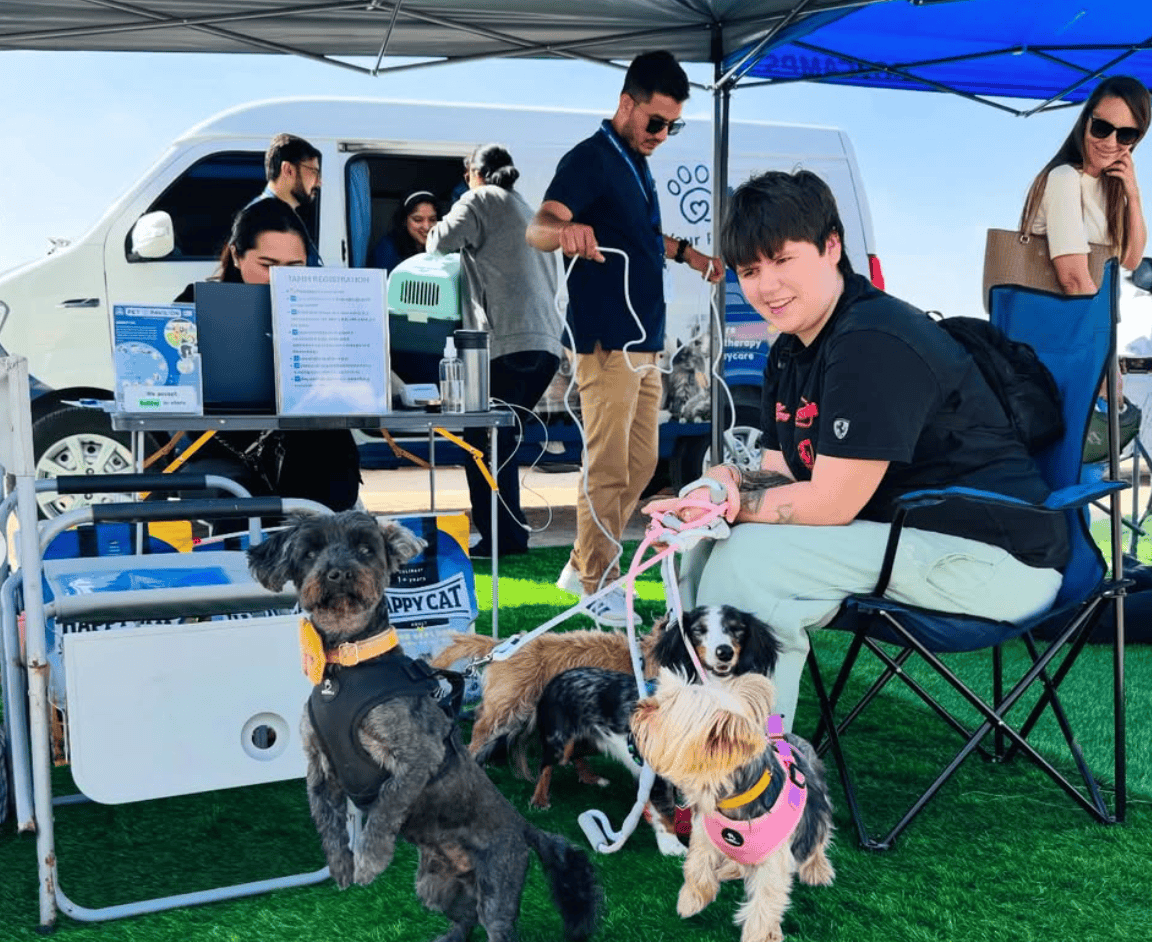Preventing & Treating Heartworm in Dogs: An Essential Guide for Pet Owners in the UAE

As a responsible pet owner in the UAE, it's important to know the potential risks that can affect your furry friend. One such risk is heartworm disease, which can be deadly if left untreated. Prevention and treatment are key to keeping your dog healthy and happy. In this guide, we'll provide essential information on heartworm prevention and treatment in dogs.
From understanding the causes and symptoms of the disease to learning about the different prevention methods and treatment options available, we've got you covered. So, let's dive in and learn how to keep your dog safe from heartworm disease.
Understanding Heartworm Disease
Heartworm disease is a serious and potentially life-threatening condition affecting dogs of all breeds, including small, hypoallergenic dogs. It is caused by the parasitic worm Dirofilariaimmitis, transmitted through infected mosquitoes' bites.
Transmission of Heartworm Disease
The immature heartworm larvae are introduced into a dog's circulation when an infected mosquito bites it. After migrating to the heart and lungs, the larvae develop into adult worms. The heart, lungs, and other organs can incur serious damage from adult heartworms that reach lengths up to a foot.
Symptoms of Heartworm Disease
Symptoms of heartworm disease can be difficult to detect in the early stages, especially in low-maintenance small dogs, since they often show no signs of infection. However, dogs may develop a persistent cough, lethargy, weight loss, and difficulty breathing as the disease progresses. In severe cases, heartworm disease can lead to heart failure and death.
Diagnosis of Heartworm Disease
Diagnosing heartworm disease typically involves a combination of blood tests, X-rays, and ultrasounds. A blood test can detect the presence of heartworms in the dog's bloodstream, while X-rays and ultrasounds can reveal the extent of the damage to the heart and lungs.
Pet owners need to understand the transmission, symptoms, and diagnosis of heartworm disease to prevent and treat it effectively.
Preventing Heartworm Disease
The good news is that heartworm disease is preventable, and the most effective way to prevent it is by using preventive medications. Several types of heartworm prevention medications are available in the market, such as oral tablets, injections, and topical solutions.
These medications kill the immature heartworm larvae transmitted by mosquitoes before they can develop into adult worms.
It's essential to talk to your veterinarian about which heartworm prevention medication is best for your dog. They will consider your dog's age, health, and lifestyle when recommending a preventive medication. Administering these medications regularly as your veterinarian directs to ensure their effectiveness is crucial.
Tips for preventing heartworm disease
Apart from using preventive medications, there are other steps pet owners can take to reduce the risk of heartworm disease in their dogs. Here are some tips:
- Keep your dog indoors during peak mosquito season, especially at dawn and dusk when mosquitoes are most active.
- Eliminate standing water in your yard, as it provides a breeding ground for mosquitoes.
- Use mosquito repellents that are safe for dogs.
- Keep your yard and surroundings clean and well-maintained to reduce mosquito populations.
- Regularly clean and replace your dog's water bowls and bedding to prevent mosquito breeding.
- Regularly take your dog for heartworm testing and check-ups with the veterinarian.
By taking these preventive measures, pet owners can significantly reduce the risk of heartworm disease in their dogs. However, if your dog does get infected, early diagnosis and treatment are crucial for a positive outcome. In the next section, we will discuss diagnosing and treating heartworm disease.
Treating Heartworm Disease
Treating heartworm disease can be long and challenging, especially if it is detected in its advanced stages. The treatment goal is to kill adult heartworms and microfilariae and prevent further damage to the dog's heart and lungs.
Medications used for heartworm treatment
The medications used for heartworm prevention and treatment are strong and can cause side effects such as vomiting, diarrhea, and lethargy. The treatment process typically involves several months of medications and close monitoring by a veterinarian.
Surgical treatment options for advanced heartworm disease
In advanced cases of heartworm disease, surgical intervention may be necessary. This includes removing adult heartworms from the heart and pulmonary arteries. Surgery is usually performed after the initial medication treatment to reduce the number of adult heartworms.
It is crucial to remember that preventing heartworm disease is much easier and less expensive than treating it. Regular heartworm prevention medication and annual testing and check-ups with a veterinarian can help ensure your dog remains healthy and heartworm-free.
Recovery and Aftercare
After treatment for heartworm disease, it is essential to monitor and manage your dog's recovery carefully. Your veterinarian may recommend periodic check-ups to assess the treatment's effectiveness and ensure no recurrence of the disease.
During recovery, your dog may need to rest and avoid physical activity to allow their body to heal fully. It is important to follow your veterinarian's advice regarding your dog's activity level and to avoid strenuous exercise and long walks. You can also try homemade recipes for small dogs for a faster recovery.
Tips for reducing the risk of heartworm re-infection
Preventing heartworm re-infection is critical to ensure your dog does not develop the disease again. Here are some tips to reduce the risk of heartworm re-infection in dogs:
Regular heartworm prevention medication: After treatment, your veterinarian may recommend regular heartworm prevention medication. Administering heartworm prevention medication monthly can reduce the risk of re-infection significantly.
Regular heartworm testing can help detect any re-infection early, which is crucial in managing the disease effectively.
Mosquito control: Since mosquitoes transmit heartworms, controlling mosquito populations in your home and yard can help reduce the risk of heartworm re-infection.
Regular veterinary check-ups: Regular veterinary check-ups can help detect any early signs of heartworm disease or other health problems in your dog.
By following these tips, you can help ensure that your dog recovers fully from heartworm disease and does not develop the disease again. Please consult your veterinarian about the best heartworm prevention and treatment plan for your dog to keep them healthy and protected.
Final Thoughts
Heartworm disease can be a serious and potentially fatal condition in dogs, but it can be prevented with proper care and treatment. By understanding the transmission, symptoms, diagnosis, and prevention of heartworm disease, you can help ensure the health and well-being of your furry companion.
At Pet Pavilion in Abu Dhabi, we offer heartworm prevention and treatment services for dogs of all sizes, including low-maintenance small dogs. Additionally, we provide dog grooming tips to help maintain your pet's overall health and wellness.
If you suspect your dog may have heartworm disease or want to learn more about heartworm prevention, please don't hesitate to contact us. Our experienced veterinarians are here to help ensure your pet's health and happiness.
For expert advice on what to consider before buying a dog toy or dog grooming tips, visit our website today!


Schedule your appointment today
Book My Appointment







